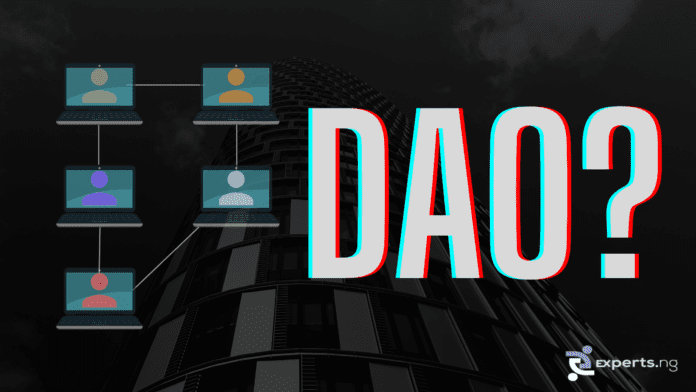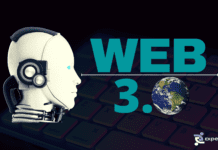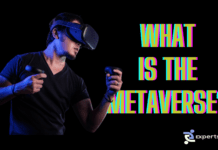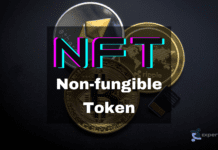Contents
DAO – A Dummy’s Guide
DAO is an acronym for – Decentralized Autonomous Organization (DAO). It is a management software running on a blockchain that organizes people and their interests on the internet; it offers users a built-in model for the collective management of its code.
They differ from traditional organizations managed by people through boards, committees and executives because it is decentralized, and it runs on a set of rules written down in codes and enforced by the network of computers running a shared software
Decision-making process has been centralised for centuries across civilisations, governments, large corporations and startups.
As a result, politicians, members of royal families, CEOs, and board members, have held power to make crucial decisions affecting communities, groups of employees, or the people they lead.
Nonetheless, history has repeatedly shown how banks, companies, government bodies, and other centralised institutions can fall victim to corruption, malpractice, leaks or hackers, server shutdowns, etc.
Blockchain technology has spawned a new type of organisation, where the structure is open-source, and the entity is operated entirely by its community. They are called DAOs, or Decentralised Autonomous Organisations. Rules are incorporated into the code, so no managers are required, eliminating all bureaucracy and hierarchy.
But, according to Ethereum, internet users around the globe are still looking for a “Safe and effective way to work with like-minded people around the globe.”
How does DAO work?
The DAO allows organizations, collectives, grantmakers, and more to meet over the internet seamlessly, even if none of them has met the other before.
DAOs have become popular methods for organising and managing various processes, assets, and projects since they offer a transparent and efficient means of collaborating online.
DAOs are autonomous because they run just like software and therefore do not require leadership from a human. For instance, if a DAO receives money, its smart contract defines how it is stored and distributed.
Also, they are autonomous in that they govern themselves and give all members of the DAO independent agency. Each individual can submit and vote on proposals for the group, which makes them an excellent resource for a transparent and efficient collective organisation.
Slock.it hacking of 2016
While the decentralised nature of blockchain makes it relatively secure, DAOs can still be hacked. In 2016, $50m of Ether was stolen from an early DAO based on the Ethereum platform called Slock.it.
In a report from Wired, it was reported that the hacker “transferred the stolen funds into a DAO clone”. The magazine explained that, as each Ether unit is “unique and traceable”, it will be flagged if the hacker tries to sell it on a cryptocurrency market.
Slock.it founder Stephan Tual was quoted as saying, “It’s like stealing the Mona Lisa.” “Great, congratulations, but what do you do with it? You can’t sell it. It’s too big to be sold.”
However, “code was supposed to remove the need to trust humans”, according to Wired. “Humans, however, are difficult to eliminate from the equation.”
The DAO industry has made “great strides” in the five years since Slock.it, says CNBC’s Locke. But investing money in this manner still carries “some risk.”
Read Also: Web 3.0: What is it, and why should you care?
A DAO’s financial transactions and rules are logged on a blockchain. The use of smart contracts simplifies financial transactions by eliminating the need to involve a third party. Smart contracts are the software that allows a DAO to function. Smart contracts are the rules of an organisation and store its data.
Since DAOs are public and transparent, no one can change their rules without people noticing. Until now, companies have been backed by legal status, but DAOs can function perfectly well without it since they can be shaped as general partnerships.
The organisation of DAOs is more democratic than that of traditional companies. Rather than a sole party implementing changes (depending on the company’s structure), all members of a DAO must vote to implement any changes. DAOs are primarily funded through crowdfunding that issues tokens.
DAOs are governed by their communities, whereas traditional companies are governed chiefly by their executives, Board of Directors, and investors. DAOs have fully transparent operations; they are global in scope, while conventional companies’ operations are private, only the organisation knows what is happening, and they are not always globally focused.
Fully Functional DAOs
To be fully functional, DAOs need the following elements:
- Rules that determine the operations,
- funding in the form of tokens that the organisation can use to reward certain activities,
- and voting rights to determine the operation rules.
Another important element is a well-defined and secure system that makes it possible for every investor to customise the organisation.
There is one potential flaw with the voting system: even if a security hole is found in the initial code, it can’t be fixed until the majority votes on it. During the voting process, hackers can take advantage of a bug in the code.
How are DAOs being used today?
DAOs have so far been used for investment, charity, fundraising, borrowing, and buying non-fungible tokens without an intermediary. To give you a better idea, a DAO can accept donations from anyone around the world, and the members make decisions about how to spend the donations.
Imagine becoming a co-owner of an Artist’s song with just cryptocurrency and an online organisation? Jenny DAO acquired its first NFT in May 2021, an original song by Steve Aoki and 3LAU.
This DAO offers fractional ownership of NFTs through the metaverse. The Unicly protocol’s smart contracts will be responsible for controlling the vault where these NFTs will be added. These contracts will allow members of the Unicly protocol to oversee the purchase of these NFTs.
Criticisms of DAO
IEEE Spectrum reports that the DAO could be vulnerable to software errors and attack vectors5. Additionally, the DAO was charting new territory in terms of regulations and corporate law, which probably did not help matters. A number of implications of the DAO’s structure were possible: investors were concerned they would be liable for actions taken by the organization as a whole.
Read Also: Cryptocurrency and Its Future in Nigeria
Additionally, the DAO operated in a murky territory regarding whether or not it’s selling securities. Also, there was long-standing concern over how the DAO would function in the real world. ETH had to be converted into fiat currencies by investors and contractors alike, and this could have implications on the value of Ether.
In the wake of the contentious debate over the future of DAO and the massive hacking incident in 2016, several prominent cryptocurrency exchanges delisted the token, effectively ending DAO as originally envisioned.
In Conclusion; the future of DAO
How will the DAO fare in the future? As of mid-2020, the DAO, as originally envisioned, did not return. Despite this, interest in decentralised autonomous organisations continues to grow as a whole. Maker Foundation, an industry icon for pioneering DAO in the crypto space, announced that it would officially shutdown and transfer operations to MakerDAO (developer of DAI stablecoin) by the end of the year 2021.
Many analysts and investors believe that this type of organisation (DAO), even if there are concerns and potential issues concerning legality, security, and structure, will eventually take off, perhaps even replacing traditional organizations.
RECOMMENDED


























